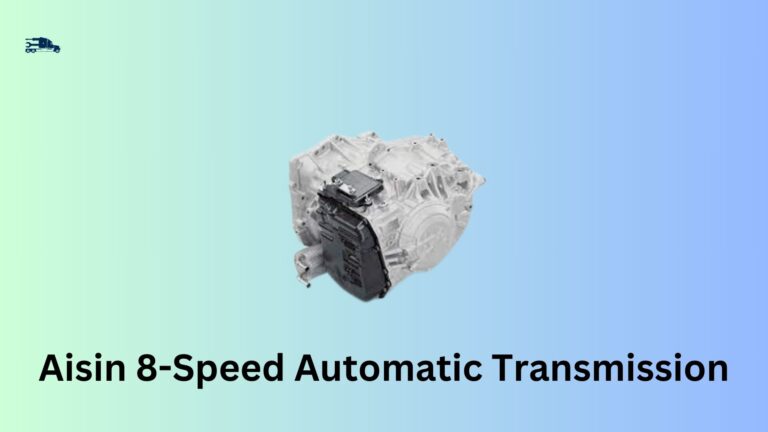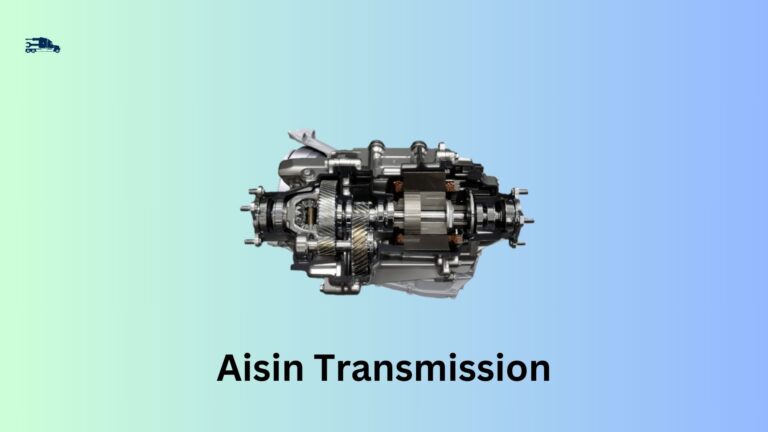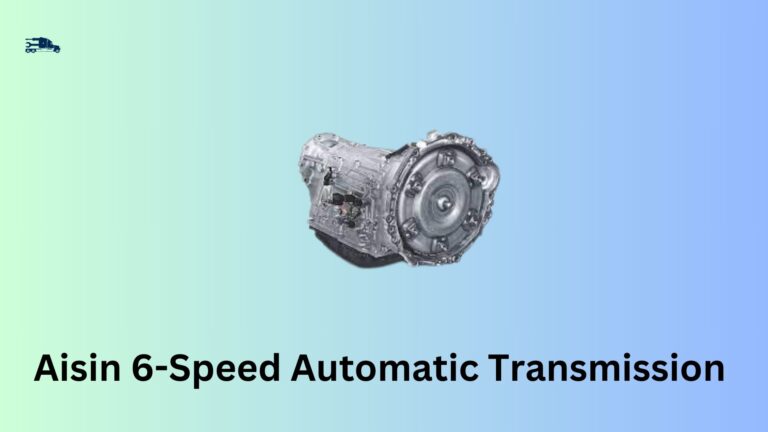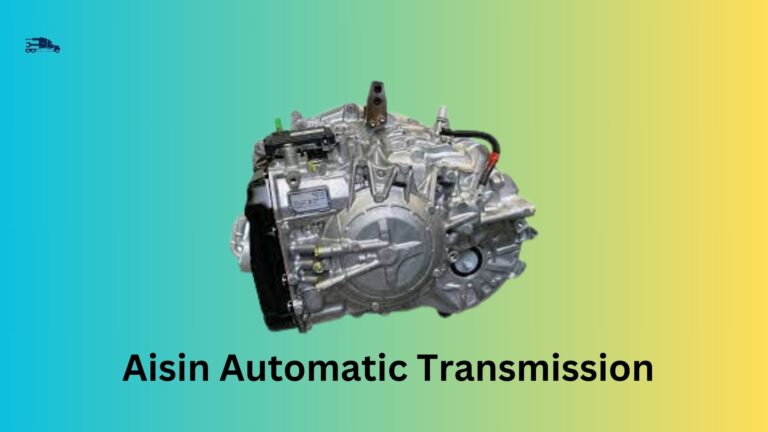Are you experiencing problems with your 2018 Aisin transmission? Don’t worry, you’re not alone! Aisin transmissions have gained popularity in vehicles manufactured in 2018, but they’re not without their issues. In this blog post, we’ll dive into the common problems faced by 2018 Aisin transmissions and provide you with some helpful solutions to get your vehicle back on track. Let’s get started
Table of Contents
Common Issues with 2018 Aisin Transmissions
Are you experiencing problems with your 2018 Aisin transmission? Don’t worry, you’re not alone! Aisin transmissions, while popular in vehicles manufactured in 2018, can encounter several common issues. Let’s take a closer look at these problems and what you can do to address them.
Problem 1: Torque Converter Issues
The torque converter is a critical component of the transmission system. When it malfunctions, it can impact your vehicle’s performance. Symptoms may include shuddering during acceleration, slipping gears, or a decrease in power. Possible causes can range from a worn-out torque converter clutch to fluid contamination. If you encounter these issues, it’s best to consult a professional mechanic who can diagnose the problem accurately. They may recommend torque converter replacement or other appropriate repairs.
Problem 2: Transmission Overheating
Overheating is a common issue that can affect the performance and longevity of your Aisin transmission. Signs of overheating include rough shifting, slipping gears, or erratic shifting. Common reasons behind these issues can include low fluid levels, fluid contamination, or a faulty cooling system. Regular maintenance, such as checking and changing the transmission fluid, can help prevent overheating. If you notice symptoms of overheating, it’s crucial to address the issue promptly to avoid further damage.
Problem 3: Delayed Engagement
Delayed engagement occurs when your transmission takes longer than usual to engage in gear. This can be frustrating and may indicate underlying issues with the transmission system. Causes can include low fluid levels, fluid contamination, or a faulty solenoid. If you experience delayed engagement, it’s recommended to have your vehicle inspected by a qualified technician. They can diagnose the problem and provide appropriate solutions, which may involve fluid replacement, solenoid repair, or other necessary repairs.
Problem 4: Gear Slippage
Gear slippage refers to when your transmission unexpectedly shifts out of gear or slips while driving. This can result in a loss of power or difficulty maintaining speed. Potential causes of gear slippage include worn-out transmission bands, low fluid levels, or a faulty clutch. It’s important to address gear slippage promptly to prevent further damage to your transmission. A professional mechanic can identify the underlying cause and recommend appropriate repairs, such as band adjustment or clutch replacement.
Problem 5: Harsh Shifting
Experiencing harsh shifting can be a jarring experience while driving. It can involve abrupt gear changes, jerking motions, or a rough transition between gears. Common causes of harsh shifting include low fluid levels, fluid contamination, or a malfunctioning solenoid. Regular maintenance, such as fluid checks and changes, can help prevent this issue. If harsh shifting persists, it’s best to consult a professional mechanic who can diagnose the problem and perform any necessary repairs.
Problem 6: Fluid Leaks
Fluid leaks can have a significant impact on the performance of your vehicle’s transmission. Leaks can lead to low fluid levels, resulting in inadequate lubrication and increased friction. This can cause rough shifting, slipping gears, or even complete transmission failure. Common causes of fluid leaks include worn seals, damaged gaskets, or loose connections. If you notice fluid leaks, it’s crucial to address them promptly. Check for visible leaks and ensure all connections are secure. If the issue persists, it’s best to consult a professional who can identify the source of the leak and recommend appropriate repairs.
Problem 7: Transmission Control Module Problems
The Transmission Control Module (TCM) is responsible for regulating the operation of the transmission. If the TCM malfunctions, it can lead to symptoms such as rough shifting, slipping gears, or erratic shifting patterns. These issues can greatly impact your driving experience. Regular maintenance and servicing are essential to prevent TCM problems. Ensure that the TCM software is up to date and have it checked regularly by a professional technician. They can diagnose any issues and provide necessary repairs or updates to the TCM.
Problem 8: Torque Converter Clutch (TCC) Problems
Torque Converter Clutch (TCC) problems can arise in your Aisin transmission and lead to transmission overheating. Signs of an overheating transmission include unusual noises, burning smells, or a decrease in performance. To prevent overheating, ensure that your transmission fluid is at the correct level and in good condition. Regular fluid checks and changes are crucial. If you suspect TCC problems or overheating, it’s recommended to have your vehicle inspected by a professional. They can offer solutions such as TCC replacement or addressing any underlying issues causing the overheating.
Problem 9: Valve Body Malfunctions
The valve body plays a vital role in controlling the flow of transmission fluid. Malfunctions in the valve body can result in issues like harsh shifting, delayed engagement, or even transmission failure. Fluid leaks can occur in various areas of the valve body, leading to these malfunctions. If you suspect valve body issues, it’s crucial to have a professional diagnose the problem. They can perform a thorough inspection, identify any fluid leaks, and recommend appropriate repairs or replacements.
Problem 10: TCM Software Updates
Software updates for the Transmission Control Module (TCM) are essential to ensure optimal performance and efficiency. Outdated software can lead to various issues, including rough shifting or erratic transmission behavior. Regularly check for TCM software updates and have them installed by a qualified technician. This simple step can help maintain the smooth operation of your Aisin transmission and prevent potential problems.
!
Preventive Maintenance: Keep Your 2018 Aisin Transmission Running Smoothly
Regular maintenance is the key to preventing transmission problems in your 2018 Aisin transmission. By taking a proactive approach, you can save yourself from costly repairs and ensure the longevity of your vehicle. Here are some essential tips to maintain the health of your transmission:
1. Check the Fluid Regularly
The transmission fluid plays a crucial role in the proper functioning of your Aisin transmission. Make it a habit to check the fluid level regularly and ensure it is at the recommended level. Low fluid levels can lead to overheating and other transmission issues.
2. Follow the Manufacturer’s Maintenance Schedule
Every vehicle has a manufacturer’s recommended maintenance schedule. Adhering to this schedule is vital to keep your transmission in top shape. The schedule includes tasks like fluid changes, filter replacements, and inspections. By following it diligently, you can identify and address potential problems before they escalate.
3. Be Gentle with Your Transmission
Avoid sudden and aggressive driving maneuvers, such as rapid acceleration or harsh braking. These actions put unnecessary strain on the transmission, leading to premature wear and tear. Smooth and gradual acceleration, as well as gentle braking, can significantly extend the lifespan of your transmission.
4. Find a Reputable Mechanic or Dealership
When it comes to maintenance and repairs, it’s crucial to find a trustworthy mechanic or dealership. Look for professionals who specialize in Aisin transmissions or have experience working with your specific vehicle model. They can provide expert advice, perform routine maintenance, and address any transmission issues effectively.
FAQs
1: What are the signs of fluid leaks in my 2018 Aisin transmission?
Look out for red or brown fluid puddles under your vehicle, a burning smell, or difficulty shifting gears.
2: How can I troubleshoot fluid leaks in my Aisin transmission?
Start by checking all visible connections for leaks and ensuring they are secure. If the issue persists, it’s best to seek professional assistance.
3: What could be causing rough shifting and slipping gears in my 2018 Aisin transmission?
Several factors can contribute to these issues, such as low fluid levels, worn clutch plates, or a malfunctioning Transmission Control Module (TCM).
4: How important is regular maintenance for my transmission’s TCM? A: Regular maintenance, including software updates and inspections, is essential to prevent TCM problems and ensure smooth transmission operation.
5: What are the potential effects of a malfunctioning valve body on my Aisin transmission?
A malfunctioning valve body can lead to harsh shifting, delayed engagement, or even complete transmission failure. Prompt repairs are necessary.
If you have more truck in your garage you could read the following transmission problems as well.
Aisin AF33 Transmission Problems: Common Issues, Solutions, and Maintenance Tips
Aisin Seiki AS66RC Transmission Problems & Solutions: A Comprehensive Guide
Aisin Seiki AS69RC Transmission Problems & Solutions: Your A-Z Guide!
Aisin Seiki AS68RC Transmission Problems & Solutions: Your Comprehensive Guide!
Conclusion
While the 2018 Aisin transmission may experience common problems like fluid leaks, TCM issues, TCC problems, valve body malfunctions, and software updates, addressing these concerns promptly can ensure a smoother driving experience. Regular maintenance, fluid checks, and professional inspections are key to maintaining the longevity and performance of your transmission. Keep your Aisin transmission in top shape for a worry-free ride!






